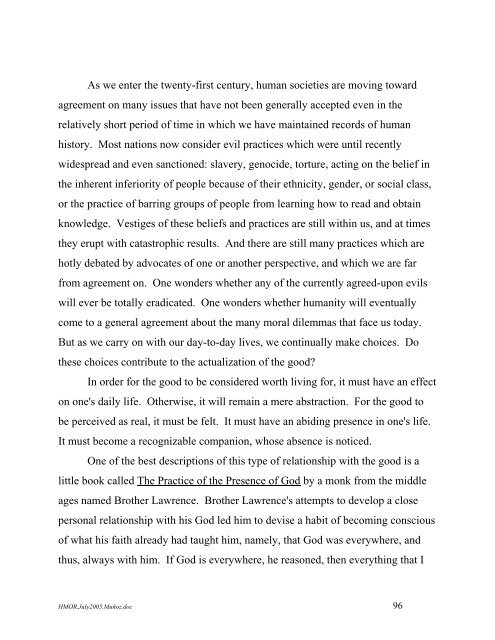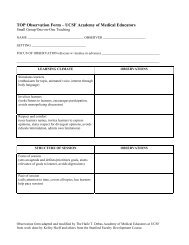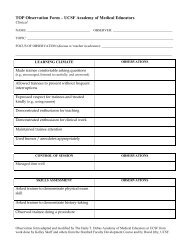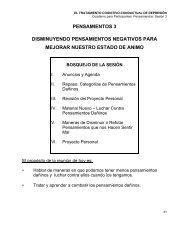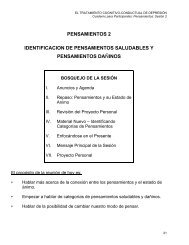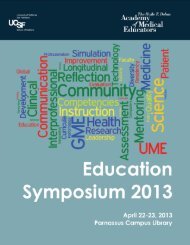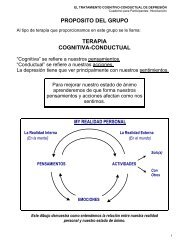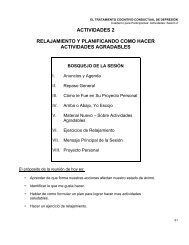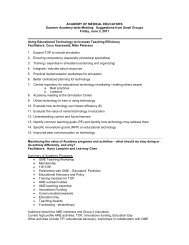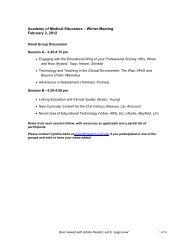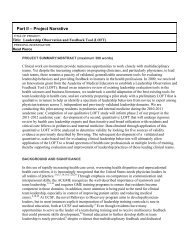As we enter the twenty-first century, human societies are moving towardagreement on many issues that have not been generally accepted even in therelatively short period <strong>of</strong> time in which we have maintained records <strong>of</strong> humanhistory. Most nations now consider evil practices which were until recentlywidespread and even sanctioned: slavery, genocide, torture, acting on the belief inthe inherent inferiority <strong>of</strong> people because <strong>of</strong> their ethnicity, gender, or social class,or the practice <strong>of</strong> barring groups <strong>of</strong> people from learning how to read and obtainknowledge. Vestiges <strong>of</strong> these beliefs and practices are still within us, and at timesthey erupt with catastrophic results. And there are still many practices which arehotly debated by advocates <strong>of</strong> one or another perspective, and which we are farfrom agreement on. One wonders whether any <strong>of</strong> the currently agreed-upon evilswill ever be totally eradicated. One wonders whether humanity will eventuallycome to a general agreement about the many moral dilemmas that face us today.But as we carry on with our day-to-day lives, we continually make choices. Dothese choices contribute to the actualization <strong>of</strong> the good?In order for the good to be considered worth living for, it must have an effecton one's daily life. Otherwise, it will remain a mere abstraction. For the good tobe perceived as real, it must be felt. It must have an abiding presence in one's life.It must become a recognizable companion, whose absence is noticed.One <strong>of</strong> the best descriptions <strong>of</strong> this type <strong>of</strong> relationship with the good is alittle book called <strong>The</strong> Practice <strong>of</strong> the Presence <strong>of</strong> God by a monk from the middleages named Brother Lawrence. Brother Lawrence's attempts to develop a closepersonal relationship with his God led him to devise a habit <strong>of</strong> becoming conscious<strong>of</strong> what his faith already had taught him, namely, that God was everywhere, andthus, always with him. If God is everywhere, he reasoned, then everything that IHMOR.July2005.Muñoz.doc 96
do is done with Him at my side. With Him at my side, everything I do becomesholy. Peeling potatoes is as holy an act as praying in church. <strong>The</strong>re is nothing I door think which is separate from God. And, because I am never away from God, Iam always in His care, never alone, never forgotten. As he practiced thisconsciousness <strong>of</strong> the presence <strong>of</strong> his God, Brother Lawrence learned that, at first, ittook effort to retain this mind state. But, as he reminded himself to do so, theconsciousness <strong>of</strong> being with his God, became second nature to him. And he foundthat this practice resulted in a deep sense <strong>of</strong> peace and happiness. <strong>The</strong> book is acompilation <strong>of</strong> his letters to others who sought to become close to the ChristianGod. <strong>The</strong>y make fascinating reading.Other traditions provide similar spiritual practices, such as the practice <strong>of</strong>mindfulness in the Buddhist tradition, the use <strong>of</strong> communal prayers at certain timesthroughout the day, practiced by Islam and many other religions, and the tradition<strong>of</strong> having conversations with one's God, as in some <strong>of</strong> the Jewish writings and thepractices <strong>of</strong> Christian mystics. Practices such as these are intended to bring theattention <strong>of</strong> the faithful back to what they understand to be the ultimate reality, bethat understood as a person-like entity, a Supreme Being, such as the ChristianGod, or a more ethereal, ineffable reality, inherently incomprehensible by thehuman mind, such as the Tao.My life experiences have led me to have a deep respect for the large variety<strong>of</strong> religious experiences that I have encountered. I was brought up in Perú, acountry in which Catholicism was, for practical purposes, the only religion. As achild, I was a deeply devout Catholic. I believed that only those who had beenbaptized Catholic and who had lived according to the teachings <strong>of</strong> the RomanCatholic Church would be saved. At age 10, my parents immigrated to SanFrancisco. I met many people from a wide variety <strong>of</strong> traditions in the next 10HMOR.July2005.Muñoz.doc 97
- Page 1 and 2:
The HealthyManagementof RealityRica
- Page 3 and 4:
The Healthy Management of RealityCo
- Page 5 and 6:
Preface: The Origins of This BookEv
- Page 7 and 8:
serious depression. The course was
- Page 9 and 10:
Introduction: Sculpting RealityIn m
- Page 11 and 12:
The people of the Andes found thems
- Page 13 and 14:
Chapter 1On Managing RealityThe uni
- Page 15 and 16:
To continue with the example: If ou
- Page 17 and 18:
But, given that we are finite and l
- Page 19 and 20:
The objective environment refers to
- Page 21 and 22:
Throughout the book, we will addres
- Page 23 and 24:
Chapter 2Choosing a Direction"If yo
- Page 25 and 26:
Choosing a direction for one's life
- Page 27 and 28:
Few Christians would support the re
- Page 30 and 31:
The "healthy" aspect of "the health
- Page 32 and 33:
It appears, then, that there is a r
- Page 34 and 35:
Once one becomes aware of oneself a
- Page 36 and 37:
HMOR.July2005.Muñoz.doc 36
- Page 38 and 39:
are what I mean by necessary suffer
- Page 40 and 41:
unnecessary and can be prevented.Th
- Page 42 and 43:
the things that cause human sufferi
- Page 44 and 45:
HMOR.July2005.Muñoz.doc 44
- Page 46 and 47: past that we remember (that is our
- Page 48 and 49: The objective past had not changed,
- Page 50 and 51: The fact is that five years hence,
- Page 52 and 53: - The meanings we have accepted or
- Page 54 and 55: Molding the past of our childrenThe
- Page 56 and 57: - The child's core beliefs. Though
- Page 58 and 59: your favorite book afterwards") the
- Page 60 and 61: making sure that one's daily realit
- Page 62 and 63: Change can move us toward a healthi
- Page 64 and 65: Similarly, behaving in an exemplary
- Page 66 and 67: Similarly, it is true that certain
- Page 68 and 69: Learning which thoughts and actions
- Page 70 and 71: do what you wish. If you are able,
- Page 72 and 73: Tips on increasing the probability
- Page 74 and 75: influence on us on one side and tho
- Page 76 and 77: Being your own coach involves decid
- Page 78 and 79: Beliefs and ConsequencesThe third l
- Page 80 and 81: Aaron Beck, a psychiatrist who deve
- Page 82 and 83: We Are Meaning-MakersThe fourth lev
- Page 84 and 85: Closing the Loop: The four levels a
- Page 86 and 87: To manage our reality optimally, we
- Page 88 and 89: If you are feeling down or depresse
- Page 90 and 91: PeopleThe social environment is at
- Page 92 and 93: stimulation just as they need their
- Page 94 and 95: In Chapter 2, I talked about choosi
- Page 98 and 99: years. As I trace back my thinking
- Page 100 and 101: what we both want.If we have a stro
- Page 102 and 103: we will have progressed in terms of


